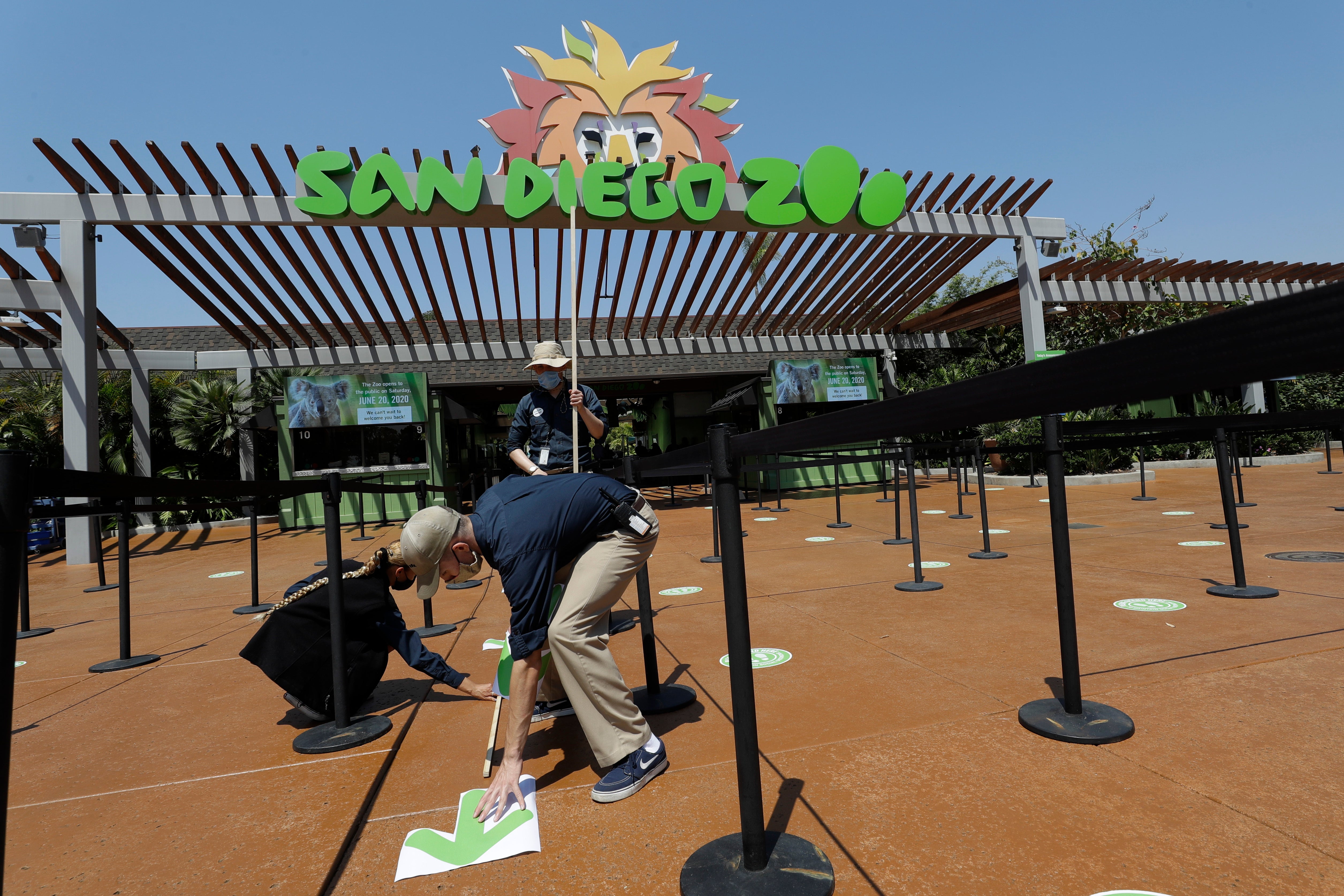9 great apes get COVID-19 vaccinations at San Diego Zoo
The San Diego Zoo has vaccinated nine great apes for the coronavirus after a troop of gorillas in its Safari Park became infected

The San Diego Zoo has vaccinated nine great apes for the coronavirus after a troop of gorillas in its Safari Park became infected, officials said Thursday.
Four orangutans and five bonobos received COVID-19 injections in January and February. Three bonobos and a gorilla also were expected to receive the vaccine, which is experimental.
It was developed by Zoetis Inc., a U.S. firm that produces medicine for animals.
The vaccinations followed a January outbreak of COVID-19 at the zoo's Safari Park. Eight western lowland gorillas got the virus, probably by exposure to a zookeeper who tested positive for COVID-19, officials said, even though employees work masks at all times around the gorillas.
“That made us realize that our other apes were at risk,” Nadine Lamberski, chief conservation and wildlife health officer for the San Diego Zoo Wildlife Alliance, told the San Diego Union-Tribune. “We wanted to do our best to protect them from this virus because we don’t really know how it’s going to impact them.”
The gorillas had symptoms ranging from runny noses to coughing and lethargy. But they are recovering.
Wildlife experts have expressed concern about the coronavirus infecting gorillas and other endangered apes that share much of their DNA with humans.
Other kinds of wildlife in other locations — from minks to tigers — also have gotten the virus.